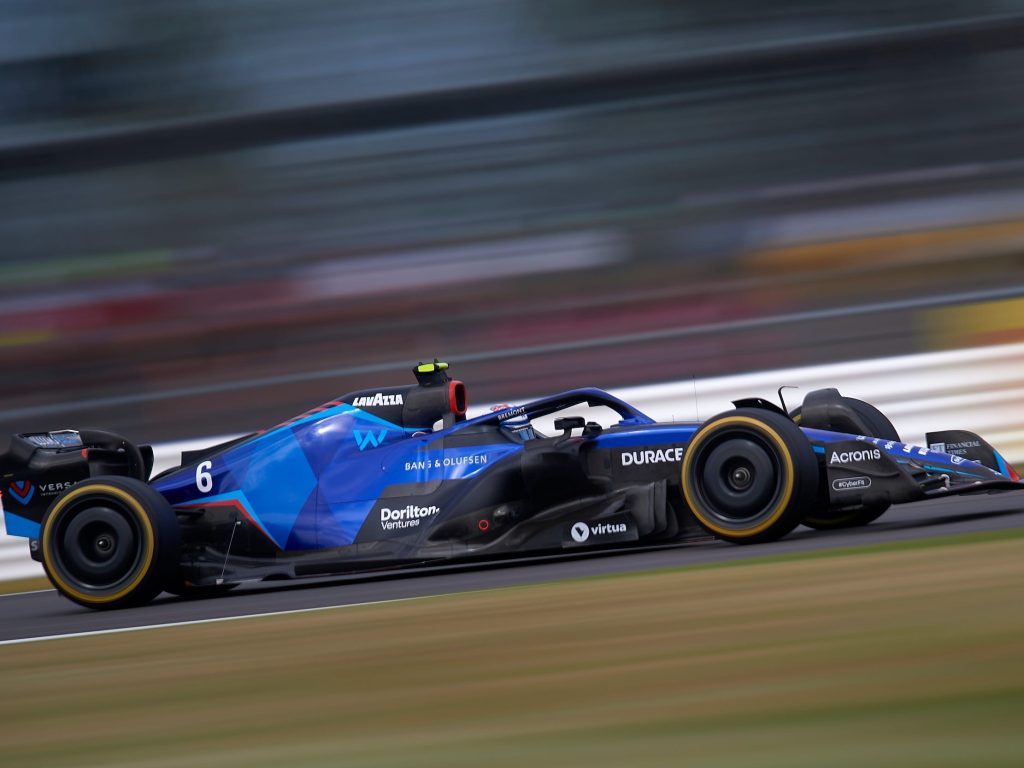Nicholas Latifi driving the Williams FW44.
Jose Breton/Pics Action/NurPhoto via Getty Images
Jost Capito became the CEO of Williams Racing after it was bought by Dorilton Capital.
He was tasked with improving the team’s performance on the track and its finances.
Capito spoke with Insider about how he planned to take the team back to the top of F1.
This is an edited, translated version of an article that originally appeared on November 8, 2022.
The Williams Racing team has won nine World Constructors’ Championships and seven World Drivers’ Championships in Formula 1.
But the team’s last victory was in 1997, and recent years have brought bad results and financial troubles. This year, Williams finished at the bottom of the championship.
After a strategic review, the Williams board, including its former owner Frank Williams, voted to sell the team to the private investment firm Dorilton Capital, in a bid to “restore the competitiveness of the team,” the company announced in August 2020.
After the takeover, Jost Capito, a former Ford Performance and Volkswagen Motorsport director, took over as CEO.
Williams has been plagued with financial issues
With the signing of the new Concorde Agreement in 2020, F1’s 10 teams agreed to the implementation of a spending cap, which limits how much they can spend during a season and aims to close the large gaps between the teams.
In 2022, teams could spend up to $140 million dollars. That figure will drop to $135 million between 2023 and 2025.
Before this, F1’s top teams had been spending more than $200 million a season, Sky Sports reported.
“In the last 10 years, Williams didn’t have the financial resources to keep up with the teams at the top,” Capito said in an interview with Insider. “Now with the spending cap, we have to try to catch up.”
He said all F1 teams faced the challenge of “how to spend the money wisely and be highly efficient.” He added: “You can’t do everything you would like to do.”
Capito said the task was made even more difficult when teams like Mercedes, Red Bull, and Ferrari had a “10-year head start.”
But he said he was optimistic that Williams would catch up in a few years.
The search for new sponsors
Capito said one of his first tasks was to redefine the team’s brand and its values so that it could find a new set of sponsors that better represent it.
He said the team had a lot of freedom because it’s financially independent of a conglomerate.
“We have the freedom to talk to the right partners,” he added.
In 2021, the team signed sponsorship deals with brands such as Duracell and Bang & Olufsen.
It also has partnerships with Acronis, Virtua, Versa, Honibe, Financial Times, Broadcom Software, Bremont, Pirelli, Umbro, Zeiss, Crew Clothing Co., PPG, OMP, KX, DTEX, BER, MEI, Life Fitness, and SIA, Capito said.
“What we look for in a partner is that they fit with Williams’ values — also that they fit with each other,” the CEO added. “We look for business-to-business opportunities, and that has worked very well for us.”
Williams is targeting the US fan base
During the US Grand Prix weekend, Capito announced that the American driver Logan Sargeant would take Nicholas Latifi’s seat next season.
The team hopes that Sargeant’s signing will help win support from American fans, with the 21-year-old set to become the first American driver to race in F1 since Alexander Rossi in 2015.
The signing also reflects Williams’ strategy to bet on young talent.
The team has reestablished its young-driver academy, which it sees it as key to its success, Capito said.
Capito said it made sense to promote young, well-performing drivers to F1 as soon as possible, as it gives them a chance to learn at the top level.
“We won’t be as competitive as someone with a few years of experience in F1,” Capito said. “But in the long run, it will be worth it.”
Capito added that Williams didn’t expect to have a car capable of competing for the championship for another few years, which is why its focus is now on ensuring the right drivers are in place when that time comes.
“It’s also a good opportunity for the young drivers. They’ll be with the team, and then they’ll have a real opportunity, which they wouldn’t otherwise have,” Capito said.
Capito added that he was determined to keep morale high, which “has to come from the leader.”
He said: “In racing, you always have more bad days than good days. I think it’s like that for everyone in motorsport. You learn to handle the bad, and then you look forward and push again.
“Learning makes you stronger and helps you get better for the next race.”

